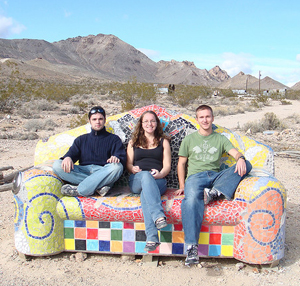A regression is taking place
 After studying in the United States for a year and returning to my home country of Turkey, I am better able to understand how my country is perceived abroad. Since the founding of the Turkish Republic in 1923, the nation has had an ever more increasing presence in the western world. As Turkey entered the 21st century, many of Mustafa Kemal Ataturk’s ideals that the Republic was built on were strongly upheld. However, despite the fact that increasing numbers of Turkish youths are taking advantage of western education abroad, the country’s strong economy, and its numerous influential international businessmen, many individuals contend my supposedly western nation is moving backwards.
After studying in the United States for a year and returning to my home country of Turkey, I am better able to understand how my country is perceived abroad. Since the founding of the Turkish Republic in 1923, the nation has had an ever more increasing presence in the western world. As Turkey entered the 21st century, many of Mustafa Kemal Ataturk’s ideals that the Republic was built on were strongly upheld. However, despite the fact that increasing numbers of Turkish youths are taking advantage of western education abroad, the country’s strong economy, and its numerous influential international businessmen, many individuals contend my supposedly western nation is moving backwards.
Unfortunately, this is not entirely incorrect. There are myriad examples that show a regression is taking place. The level of media censorship is at a high, the government is close to putting a ban on abortions, and women’s usage of headscarves is becoming more and more abundant. As each day passes, individuals like myself, worry for the future of our secular liberties and thus the preservation of our Western nation.
It seems to me that the Ottoman ideals are beginning to be rewoven into our society through the media. Upon returning home, I realized that the tales of sultans and the way of life during the Ottoman period are ubiquitous. A new extremely popular TV show, “Muhtesem Yüzyil” (The Spectacular Century), has become a media craze. Every Wednesday night, a vast percentage of the Turkish population stays home to watch the new episode and experience the life behind the walls of the Ottoman Palace. This popular show, which is essentially propaganda in the form of an episodic, coupled with media censorship, has unquestionably contributed to Turkey’s move away from its Western ideals.
There is a constant debate between middle class Turks about how the Islamic tendency that rose after the 80’s would turn back into westernization. Modernization began with the military in the late Ottoman period and Ataturk introduced the western ideas of nationalism and secularism to the country with the help of these armed forces. These ideas broke an Islamic heritage that had been the center of the Ottoman state for centuries. The military thus believes that their body is responsible for maintaining the secular republic and thus intervenes with regularity in the government. However, recently these interventions have been to no avail.
Today’s tensions between secular Turks and the conservative ruling party is something Turkey has been familiar with for decades. However, as the years of Ataturk’s existence become farther and farther in the past, individuals like myself worry about the serious social and political changes that are taking place. Unfortunately, the usage of headscarves by women has recently increased. This has an impact on Turkey’s international image. I have witnessed first had in the United States how this image has changed the way Turkey is perceived abroad. Instead of being perceived as the Western European nation that Ataturk strived to create, we appear to be a Middle Eastern country. Although I become frustrated when I hear Turkey being regarded as a conservative Islamic nation, these perceptions are no longer farfetched.
The aforementioned political changes, accompanied by the media’s prominent depictions of the Spectacular Ottoman Empire makes me fear that my country’s Islamic past may become a part of my future.













Social